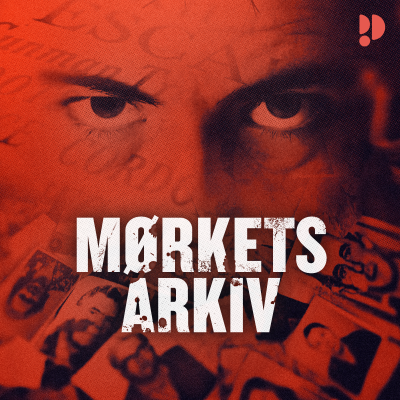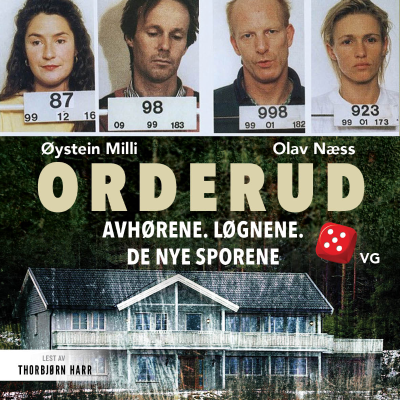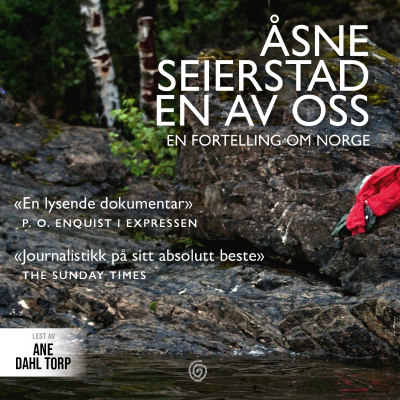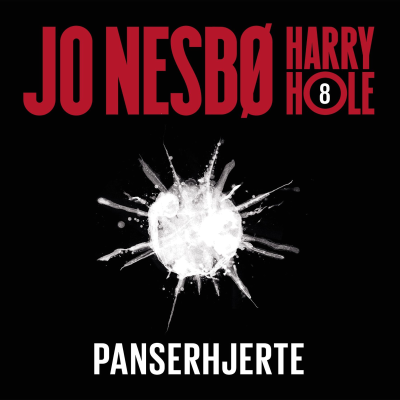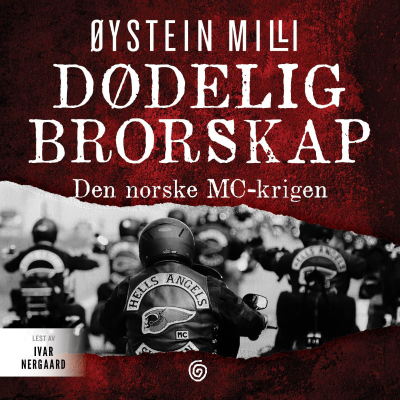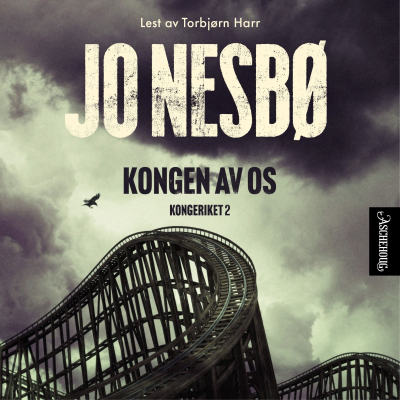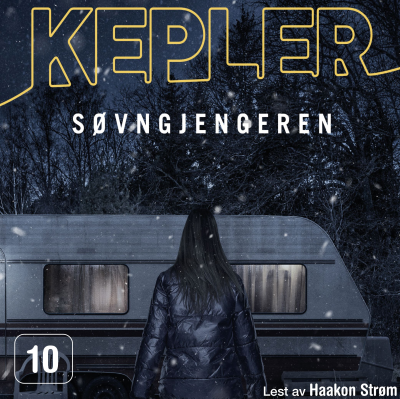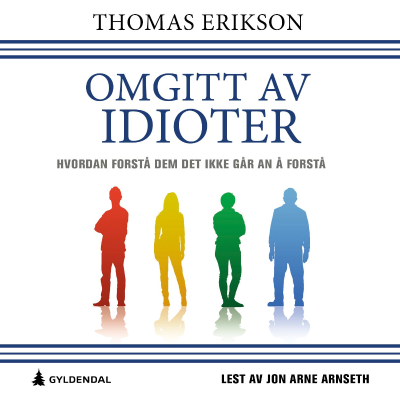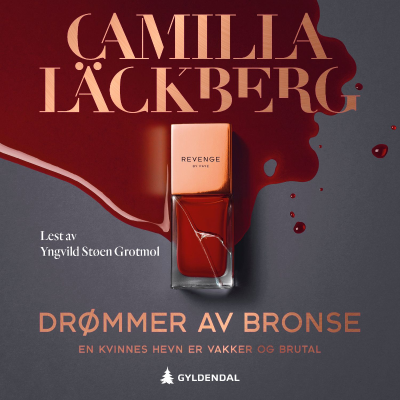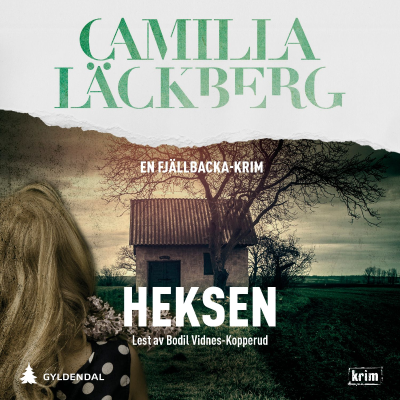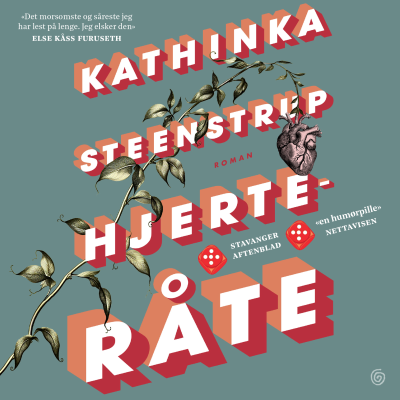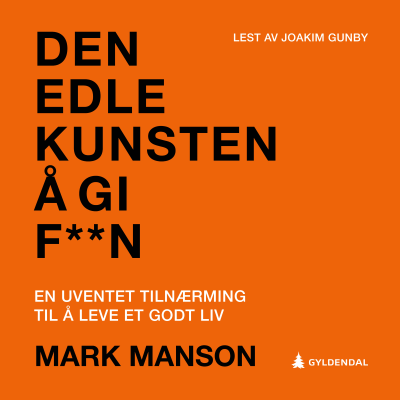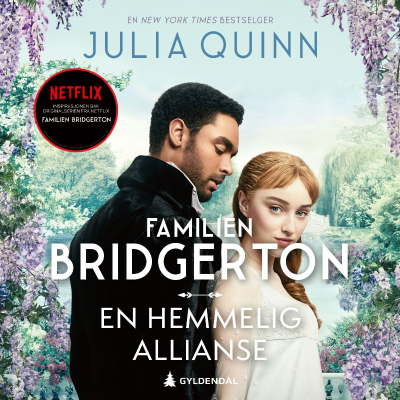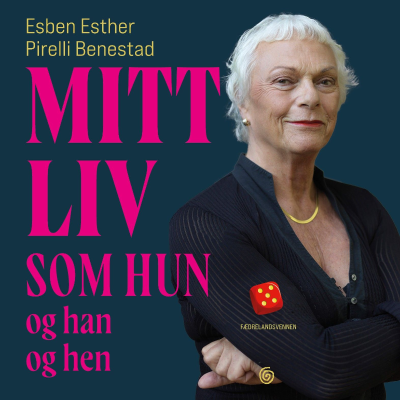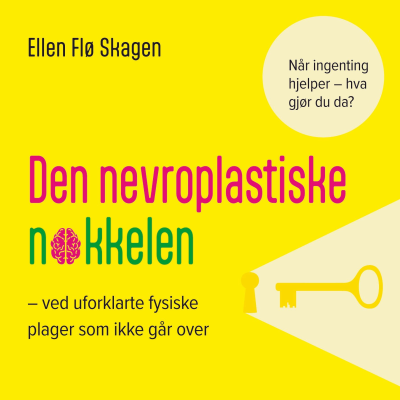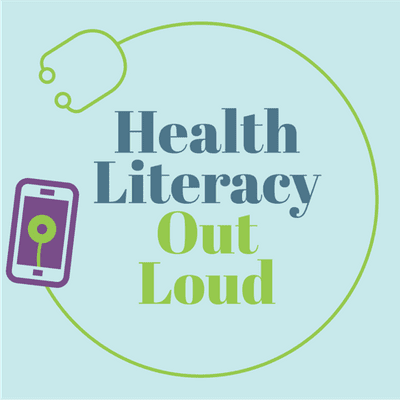
Health Literacy Out Loud Podcast
engelsk
Teknologi og vitenskap
Prøv gratis i 14 dager
99 kr / Måned etter prøveperioden.Avslutt når som helst.
- 20 timer lydbøker i måneden
- Eksklusive podkaster
- Gratis podkaster
Les mer Health Literacy Out Loud Podcast
Podcast Interviews With Those In-the-Know About Heath Literacy
Alle episoder
117 EpisoderCanine Companions and Facility Dogs in Healthcare (HLOL #268)
[https://www.healthliteracyoutloud.com/wp-content/uploads/2026/01/Jennifer-Johnson-150x150.jpeg] [https://www.healthliteracyoutloud.com/wp-content/uploads/2026/01/CRL-w-H-150x150.jpeg]Eli Gerard has worked with Canine Companions [https://canine.org/] for nearly a decade, including five years as a trainer. He now serves as the Program Field Representative for the Northeast Region. Eli assists with all aspects of the program including puppy raising support, placement of dogs released from the program, and direct work with clients. He brings to this his experience working in special education and enjoyment of many outdoor activities. Jennifer Johnson has worked as a Child Life Specialist at Sutter Health in California for over 30 years. Most of that time, she specialized in pediatric oncology, supporting children and families as they navigate the significant stress and challenges of cancer treatment. In 2004, Jennifer became a Canine Companions graduate with her first facility dog, Millie. Together, they were pioneers in integrating facility dogs into the pediatric units at Sutter Health. Jennifer has worked with several dogs since, including her newest one, Bill. There are now 16 facility dog graduate teams across the Sutter Health system. As Jennifer shares, the positive impact of these dogs is truly powerful medicine. Eli Gerard and Jennifer Johnson talk with Helen Osborne about: * Canine Companions. A non-profit organization that provides trained service dogs and ongoing support to people with disabilities free of charge. * Service dogs. Breeds of dogs, their training, and acquired skills. * Facility dogs. How they help in inpatient and outpatient pediatric care. * Ways for listeners to get involved through volunteering or perhaps even using facility dogs in their settings. More ways to learn: * Canine Companions [https://canine.org/] * Sutter Health Animal-Assisted Therapy [https://www.sutterhealth.org/services/animal-assisted-therapy] Videos: * Making an Impact with Canine Companions [https://www.youtube.com/watch?v=j75Bu-Xu9P8&list=PLbGXIyIDEN2NqI9bPyY7czWrt_Gdb4_9z&index=6] * Canine Companions Facility Dogs at Sutter Health [https://www.youtube.com/watch?v=b9ho28n-Tuo] * How to Approach a Service Dog in Public [https://www.youtube.com/watch?v=OkKXv9I_H3s] Social Media: * @canineorg * @SutterFacilityDogs Health Literacy from A to Z: Practical Ways to Communicate Your Health Message, Third Edition [https://healthliteracy.com/health-literacy-from-a-to-z-third-edition-practical-ways-to-communicate-your-health-message/], by Helen Osborne. The chapter “Community Connections” is especially relevant to this podcast episode. Read a transcript of this podcast. [https://healthliteracy.com/2026/02/01/canine-companions-and-facility-dogs-in-healthcare-hlol-268-2/] The post Canine Companions and Facility Dogs in Healthcare (HLOL #268) [https://www.healthliteracyoutloud.com/2026/02/01/canine-companions-and-facility-dogs-in-healthcare-hlol-268/] appeared first on Health Literacy Out Loud Podcast [https://www.healthliteracyoutloud.com].
Communicating Clearly with People Who Have Disabilities (HLOL #267)
[https://www.healthliteracyoutloud.com/wp-content/uploads/2025/12/JN-in-DC-May-2024-150x150.jpg][https://www.healthliteracyoutloud.com/wp-content/uploads/2025/12/Tamaras-headshot-for-podcast-150x150.jpeg]Tamara Huntley is a licensed social worker and passionate advocate for individuals with disabilities. Born with cerebral palsy, Tamara serves as the Self-Advocacy Liaison for the Massachusetts Developmental Disabilities Council and contributes to research through Brandeis University’s Bridges Project. Tamara is a widow and proud single mother of two. Professionally and personally, Tamara’s commitment is to create a more inclusive world. Joanne Nicholson, PhD is a clinical and research psychologist, Professor at the Institute for Behavioral Health at Brandeis University, and Adjunct Professor of Psychiatry at the UMass Chan Medical School. Joanne’s research focuses on interventions, services, and support for families living with behavioral health conditions and disability. Joanne always partners with whose who bring lived experience. The PCORI-funded Bridges Project team, an active collaboration between Brandeis and partners at the Harvard Medical School Countway Library, includes mothers living with intellectual and developmental disabilities and focuses on promoting “Research Better Together.” Listen as Tamara Huntley and Joanne Nicholson talk with Helen Osborne about: * Disabilities can include people with intellectual, physical and mental health challenges. Often, disabilities affect communication. * Recommendations about ways to communicate clearly and respectfully with people who have disabilities. * The value to everyone when partnering with people who bring lived experience whether in clinical care, research, or community settings. More Ways to Learn: * “Mothers with Intellectual/Developmental Disabilities and Behavioral Health Conditions and Community Experts Provide Recommendations for Treatment/Services, Systems, and Research.” [https://pubmed.ncbi.nlm.nih.gov/37239601/] By Nicholson J, Mazel S, Faughnan K, Silverman A. Int J Environ Res Public Health, May 19, 2023. * Massachusetts Developmental Disabilities Council [https://www.mass.gov/orgs/massachusetts-developmental-disabilities-council] (MDDC) Health Literacy from A to Z: Practical Ways to Communicate Your Health Message, Third Edition [https://healthliteracy.com/health-literacy-from-a-to-z-third-edition-practical-ways-to-communicate-your-health-message/], by Helen Osborne. All the chapters about “Know Your Audience” are relevant to this podcast. Read a transcript of this podcast. [https://healthliteracy.com/2026/01/04/communicating-clearly-with-people-who-have-disabilities-hlol-267-2/] The post Communicating Clearly with People Who Have Disabilities (HLOL #267) [https://www.healthliteracyoutloud.com/2026/01/01/communicating-clearly-with-people-who-have-disabilities-hlol-267/] appeared first on Health Literacy Out Loud Podcast [https://www.healthliteracyoutloud.com].
Emergency Health Information (HLOL #266)
[https://www.healthliteracyoutloud.com/wp-content/uploads/2025/11/caroline-foreman-photo-150x150.jpeg]Dr Caroline Foreman B.Sc BMBS FRACP is a clinical immunology and allergy specialist, with a special interest in the communication of allergies. As Medical Director of the not-for-profit foundation MedicAlert Australia [https://www.medicalert.org.au/], Caroline provides clinical oversight and guidance to ensure that this foundation maintains its high clinical standards. Listen as Dr Caroline Foreman talks with Helen Osborne about: * Emergency health information. A simplified medical history that prioritizes information about what to do and not do in an emergency. * How this information helps first responders, doctors, and patients. * Ways patients can be their own advocate even in an emergency by sharing essential health information with MedicAlert’s scannable QR code. More ways to learn: * How MedicAlert’s QR code works [https://www.youtube.com/watch?v=oP6QhFj62xg] (video demonstration on youtube) * When Patients Create Their Own Binders: A Powerful Way to Get Organized and Feel More in Control [https://www.healthliteracyoutloud.com/2019/09/01/when-patients-create-their-own-medical-binders-a-powerful-way-to-get-organized-and-feel-more-in-control-hlol-190/]. Health Literacy Out Loud podcast interview with Bridget Gaglio Information about MedicAlert in Australia: * Trusted Medical ID and Alert Jewellery by MedicAlert® [https://www.medicalert.org.au/] * MedicAlert’s QR ID Code [https://www.medicalert.org.au/qr-code] * MedicAlert Foundation Australia | Facebook [https://www.facebook.com/MedicAlertFoundationAustralia/] * MedicAlert Australia (@medicalert.au) • Instagram photos and videos [https://www.instagram.com/medicalert.au/] Information about MedicAlert in USA: * MedicAlert Foundation [https://www.medicalert.org/] * QR Code Medical IDs, MedicAlert Foundation [https://www.medicalert.org/] Information about MedicAlert in Canada: * MedicAlert Foundation Canada | We Speak When You Can’t [https://www.medicalert.ca/] * MedicAlert’s New +CARD [https://www.medicalert.ca/plus-card] Health Literacy from A to Z: Practical Ways to Communicate Your Health Message, Third Edition [https://healthliteracy.com/health-literacy-from-a-to-z-third-edition-practical-ways-to-communicate-your-health-message/], by Helen Osborne. The chapter “Community Connections” is especially relevant to this podcast. Read a transcript of this podcast. [https://healthliteracy.com/2025/12/01/emergency-health-information-hlol-266-2/] The post Emergency Health Information (HLOL #266) [https://www.healthliteracyoutloud.com/2025/12/01/emergency-health-information-hlol-266/] appeared first on Health Literacy Out Loud Podcast [https://www.healthliteracyoutloud.com].
Narrative Journalism: Stories to Make Points Clear and Compelling (HLOL #265)
[https://www.healthliteracyoutloud.com/wp-content/uploads/2025/10/Seegert-head-150x150.jpg]Liz Seegert is an award-winning, independent journalist. Liz has written about health for more than 30 years. Her main beats include aging, women’s health, social determinants of health, and health policy. Liz’s articles have appeared in dozens of national and local media outlets including Scientific American, TIME, The American Journal of Nursing, and Web MD/Medscape. Liz is the contributing editor on aging and health equity for the Association of Healthcare Journalists (AHCJ). She also co-directs two fellowship programs–mentoring and training emerging journalists in aging and in health reporting. Listen as Liz Seegert talks with Helen Osborne about: * Narrative Journalism. What it is and how narrative journalism uses real-life stories to make points clear and compelling. * Ways to include elements of narrative journalism in messages about health, public health, and health advocacy. * Recommendations from a journalist. These include tips for working with sources who let you share their stories. And examples of ways to respond when editors, lawyers, and others comment on your writing. More ways to learn: * Liz Seegert: Health Journalist/Writer [https://www.lizseegert.com/] * Liz Seegert on LinkedIn [http://www.linkedin.com/in/lizseegert] * Liz Seegert on Bluesky [https://bsky.app/profile/lizseegert.bsky.social] * Association of Health Care Journalists Age Beat [https://healthjournalism.org/topic/aging/] Health Literacy from A to Z: Practical Ways to Communicate Your Health Message, Third Edition [https://healthliteracy.com/health-literacy-from-a-to-z-third-edition-practical-ways-to-communicate-your-health-message/], by Helen Osborne. The chapter “General Public: Traditional Media” is especially relevant to this podcast Read a transcript of this podcast. [https://healthliteracy.com/2025/11/03/narrative-journalism-stories-to-make-points-clear-and-compelling-hlol-265-2/] The post Narrative Journalism: Stories to Make Points Clear and Compelling (HLOL #265) [https://www.healthliteracyoutloud.com/2025/11/01/narrative-journalism-stories-to-make-points-clear-and-compelling-hlol-265/] appeared first on Health Literacy Out Loud Podcast [https://www.healthliteracyoutloud.com].
U.S. Health Literacy Association: From Silos to Synergy (HLOL #264)
[https://www.healthliteracyoutloud.com/wp-content/uploads/2025/09/KK_Headshot2-150x150.jpeg][https://www.healthliteracyoutloud.com/wp-content/uploads/2025/09/Monique-Headshot-150x150.jpeg]Today’s two guests are leaders of the new United States Health Literacy Association (USHLA). * Karen Komondor, RN, BSN, CCRN, is the co-founder and president of USHLA. Recognized for her ongoing leadership and expertise in health literacy, Karen’s passion for this topic comes from knowing why, both personally and professionally, understandable health communication matters so much. Karen is Founder and President of Health Literacy 360, LLC, a consulting and training firm that focuses on enhancing healthcare communication practices. In all her work, Karen builds on collaboration to expand the boundaries of health literacy. * Monique Hill, MSW, is the Secretary of USHLA. She also is the Founder and Lead Consultant of HELP Solutions, a health equity consulting firm launched in 2022. Prior to this, Monique served as an Associate Professor and Health Literacy and Partnership Engagement Advisor for the National Network of Libraries of Medicine, Region 2. Monique’s ongoing mission is to ensure that every community has the tools, understanding, and support to take charge of their health. Helen Osborne talks with Karen Komondor and Monique Hill about: * United States Health Literacy Association (USHLA) is a national, grassroots, non-profit organization. Its focus is to be “policy-powered” and “advocacy-driven.” * USHLA is designed as a dynamic forum where individuals and organizations can connect, collaborate, take action, and share resources to advance health literacy. It is about building synergy, rather than remaining in silos. * Opportunities and encouragement to get involved with USHLA. More ways to learn: * United States Health Literacy Association (USHLA) [https://www.ushla.org/] * Health Literacy 360, LLC [https://www.healthlit360.com/] (Karen Komondor) * Health Equity & Literacy Partnership (HELP) Solutions [https://www.linkedin.com/in/helpsolutions/] (Monique Hill) * Health Literacy definitions in Healthy People 2030 [https://odphp.health.gov/healthypeople/priority-areas/health-literacy-healthy-people-2030] * “The Value of Knowing Why Health Literacy Matters,” [https://www.healthliteracyoutloud.com/2023/05/01/the-value-of-knowing-why-health-literacy-matters-hlol-235/] HLOL podcast interview with Karen Komondor * “Learning and Teaching about Health & Insurance,” [https://www.healthliteracyoutloud.com/2014/09/16/learning-and-teaching-about-health-insurance-hlol-121/] HLOL podcast interview with Bonnie Braun Health Literacy from A to Z: Practical Ways to Communicate Your Health Message, Third Edition [https://healthliteracy.com/health-literacy-from-a-to-z-third-edition-practical-ways-to-communicate-your-health-message/], by Helen Osborne. The chapter “Organizations: Health Literacy Across Programs, Companies, Communities, and Countries” is especially relevant to this podcast. Read a transcript of this podcast. [https://healthliteracy.com/2025/10/01/u-s-health-literacy-association-from-silos-to-synergy-hlol-264-2/] The post U.S. Health Literacy Association: From Silos to Synergy (HLOL #264) [https://www.healthliteracyoutloud.com/2025/10/01/u-s-health-literacy-association-from-silos-to-synergy-hlol-264/] appeared first on Health Literacy Out Loud Podcast [https://www.healthliteracyoutloud.com].
Velg abonnementet ditt
Premium
20 timer lydbøker
Eksklusive podkaster
Gratis podkaster
Avslutt når som helst
Prøv gratis i 14 dager
Deretter 99 kr / måned
Premium Plus
100 timer lydbøker
Eksklusive podkaster
Gratis podkaster
Avslutt når som helst
Prøv gratis i 14 dager
Deretter 169 kr / måned
Prøv gratis i 14 dager. 99 kr / Måned etter prøveperioden. Avslutt når som helst.






